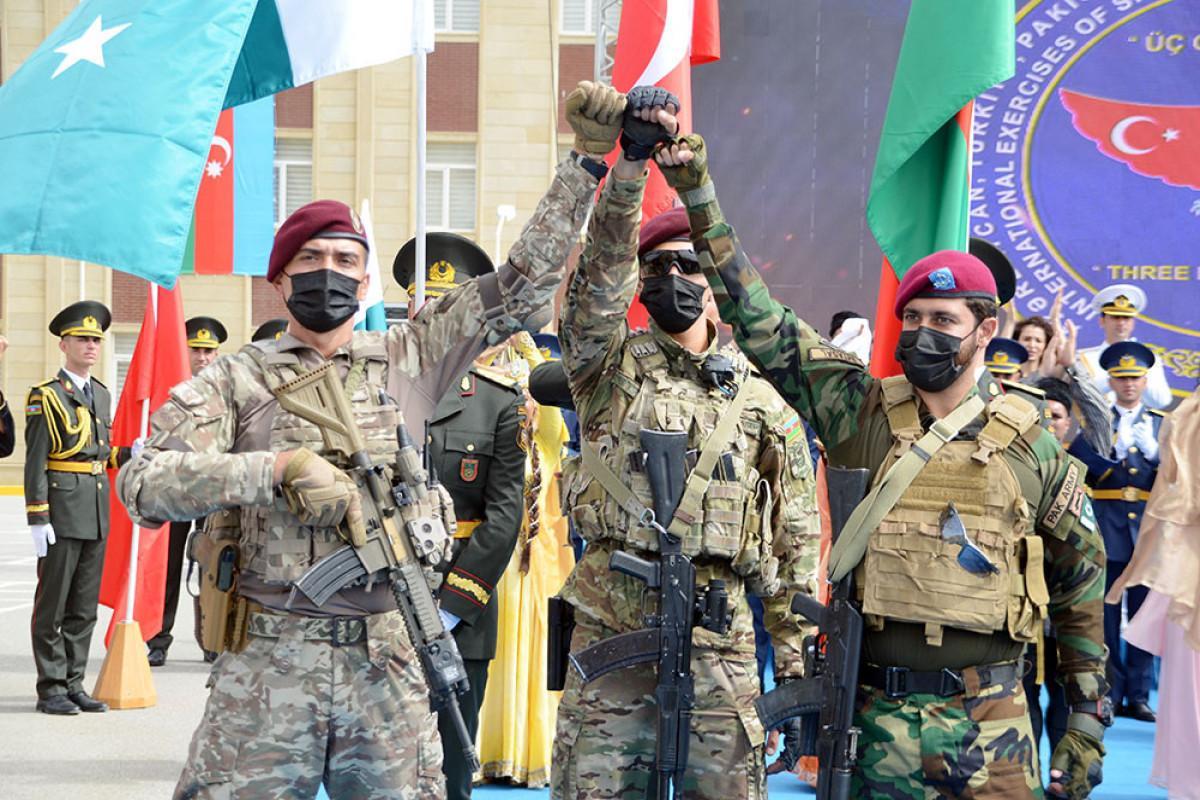Emergence of Pakistan-Azerbaijan-Türkiye axis A new chapter in Eurasian geopolitics
The American website International Policy Digest published an article dedicated to the Pakistan-Azerbaijan-Türkiye (PAT) trilateral alliance. Caliber.Az reprints the article.
Pakistan, Azerbaijan, and Türkiye are expanding ties with one another.
The geopolitical chessboard is witnessing the rise of a compelling triad—the PAT alliance, encompassing Pakistan, Azerbaijan, and Türkiye . This trio of Muslim-majority nations forges a novel nexus of amity that seamlessly bridges South Asia, the Caucasus, and the Middle East. This alliance is cemented not by proximity but by a robust tapestry of shared principles, mutual strategic interests, and deep-seated respect.
The tripartite bond among these nations, though rooted in a storied bilateral past, has seen a dynamic evolution in recent years. The signing of the tripartite Baku Declaration in 2021 symbolized the burgeoning multifaceted cooperation that spans military, economic, diplomatic, and cultural realms.
The alliance’s military endeavours first manifested with joint military exercises in Azerbaijan’s capital in 2017, which were a display of unified strength and strategic intentions. The subsequent establishment of a parliamentary friendship group in 2018 underscored the importance of legislative diplomacy. The unwavering support for Azerbaijan during the Nagorno-Karabakh conflict with Armenia in 2020 was a clear stance on regional sovereignty. The inaugural trilateral foreign ministers’ meeting in Islamabad in 2021 was a pivotal moment that crystallized their collective aspirations for regional stability and prosperity.
Economic and cultural ties within the alliance have been vigorously pursued. A slew of agreements and understandings concerning trade, investment, energy, and more have been enacted. People-to-people connections have been bolstered through eased travel constraints and cultural exchanges, including festivals and sporting events. Moreover, a unified front on global issues—ranging from the Afghan peace initiative to the contentious Kashmir situation—illustrates their strategic alignment.
Azerbaijan’s engagement in Pakistan is particularly noteworthy, with the Heydar Aliyev Foundation championing initiatives from educational to healthcare projects, thereby fortifying the alliance’s humanitarian dimensions.
The alliance’s military aspect cannot be understated. Türkiye’s ascension as a primary arms provider to Pakistan indicates a strategic pivot, reducing Islamabad’s reliance on its traditional allies and diversifying its defence portfolio.

The Ankara-Baku-Islamabad nexus is ambitiously sculpting a new geopolitical reality across the vast expanse of Eurasia, with the intention of bolstering each nation’s strategic interests. Observing how other regional powers—namely Iran, Russia, and India—interpret the deepening of this partnership is crucial, as it may pose a perceived challenge to their interests.
Iran has openly expressed its apprehension toward the alliance’s military undertones, casting Azerbaijan in a conspiratorial light regarding espionage and voicing concerns over Pakistan’s Taliban engagements. Conversely, India’s response is characterized by its historical rivalry with Pakistan and Türkiye, particularly over Kashmir, and its overt support for Armenia implies a strategic countermove. This intricate web of alliances and counter-alliances has also seen India, Iran, and Armenia forge a cooperative front to counterbalance the emerging PAT axis.
Russia’s reaction to the alliance is one of calculated ambiguity, as it maintains a delicate balance of ally and competitor to the PAT nations. Russia’s intricate web of relationships as Armenia’s ally, Azerbaijan’s arms dealer, Türkiye ’s partner, and Pakistan’s regional stakeholder frames its cautious approach to the PAT alliance.
This emergent PAT axis is not a mere coalition of convenience but a deliberate and strategic partnership that mirrors a profound kinship and a visionary perspective on the future. The alliance is not aimed at subverting the existing global or regional frameworks; rather, it exemplifies a paradigm of collaboration that could beckon other nations to unite for the collective good.
In a world beleaguered by unprecedented predicaments such as climate catastrophes, the resurgence of nationalist ideologies, escalating violence, and the erosion of multilateralism, the alliance’s stance is significant. While Azerbaijan, Türkiye , and Pakistan may not confront all these issues directly, their alliance is a symbol of cultural and historical solidarity, extending into military, economic, and energy collaborations. They offer a model of how hard and soft power can be harnessed to address global concerns such as Islamophobia and the oppression of Muslims worldwide. This alliance underscores that embracing diversity, fostering dialogue, and pursuing diplomatic avenues remain the cornerstone of resolving disputes and bridging divides in our globalized epoch.








